
How Inflation and Interest Rates affect Cryptocurrency Markets
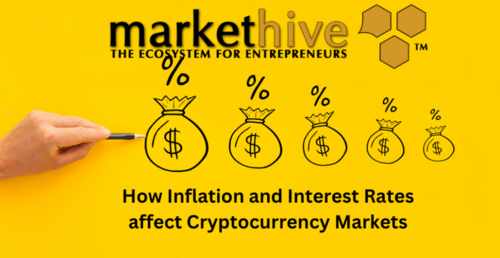
Inflation has become a very real part of our daily lives. There it is, staring you in the face at the gas pump, at the price tags in the grocery aisles, and at your local restaurant.
It’s not the first time investors have had to endure tough market conditions, though. A columnist in the NY Times noted that the US has been in recession 14% of the time since World War 2. Facts, however, don’t help much when faced with a big dent in your savings, but they do give some needed perspective. Good times in the markets are generally followed by tough times, and so on. This is what the professionals mean when they say that markets are cyclical.
We turned to the professionals for insights about the current bear market, what it is, why it is, and how things may play out. Economist Jeffery Schultz, Senior Economist at BNP Paribas South Africa, answered our questions below.
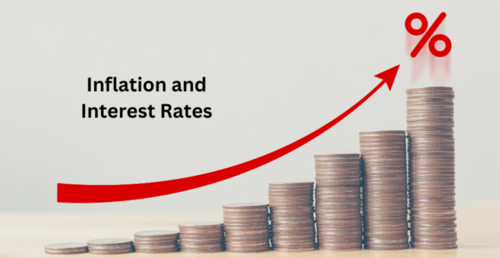
“Inflation is the hottest topic in the markets right now because it affects so many moving parts in the global financial system, not least consumer behaviour, the cornerstone of global growth and activity,” says Schultz.
He explains that inflation in many developed countries are at levels last seen in the 1980s. During these times, the US Federal Reserve Bank had to actually cause a recession by aggressively hiking interest rates to curb consumer spending, one of the main drivers of inflation.
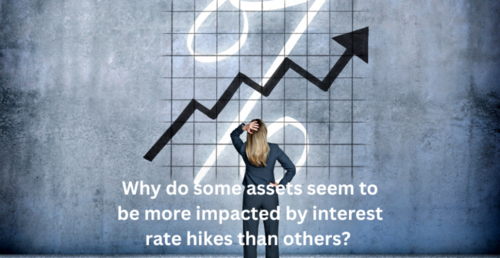
“A global recession hurts risk appetite, which is why risky assets generally tend to fare poorly in these periods,” says Shultz. There is a “flight to safety” during bear markets, he says, which has historically been reserve currencies like the US Dollar.
We have seen cryptocurrency perform similarly to tech stocks over the past year, which have historically been considered riskier assets.
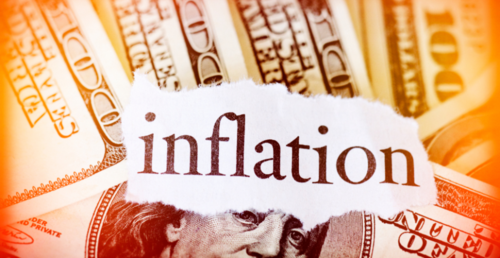
“Covid-19 created a number of global supply chain bottlenecks,” says Schultz, and this has been made worse by global political unrest and the resulting impact on the supply side in food, agriculture and energy.
Unprecedented levels of income support during the pandemic have also led to an increase in savings and thus an increase in spending. In other words, an increase in demand for things, which pushes up prices, according to the laws of supply and demand.
.png)
“Because of the sheer size and importance of the US economy in the global economic system, not to mention the Dollar’s role as a global reserve currency,” Schultz explains.
The fact that a major developed nation such as the US is struggling to get inflation under control will spill over into all other markets, especially the drastic measures – raising interest rates – the Fed has taken to get the situation under control, he explains.
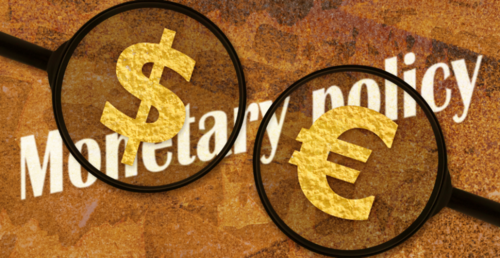
“It is clear that many central banks have been behind the curve and are now having to play catchup,” Schultz says. “The Fed is going to have to raise interest rates more aggressively to ensure it takes back control of inflation and inflation expectations.”
The Federal Reserve kept the target range for the federal funds rate at its 22-year high of 5.25%-5.5% for a second consecutive time in November, reflecting policymakers' dual focus on returning inflation to the 2% target while avoiding excessive monetary tightening
.png)
The Federal Reserve kept the target range for the federal funds rate at its 22-year high of 5.25%-5.5% for a second consecutive time in November 2023. A basis point is 1/100 of a percent. So, 50 bp would mean an interest rate hike of 0.5%. To give some context, in the 1980s, the Chair of the Federal Reserve, Paul Volcker, raised interest rates to almost 20%. The US interest rate at the moment is 1.75%, and has averaged around 5% between 1971 and 2022.
These interest rate hikes are meant to cool down the US economy by incentivising consumers to save and curb their spending.
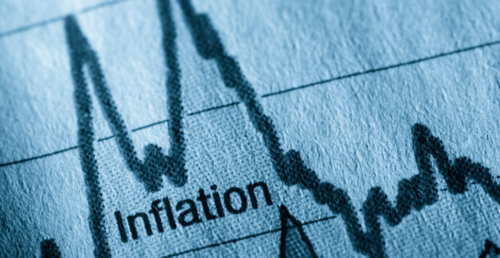
The Fed and other central banks, which are completely independent from the government, use monetary policy to keep prices in check through inflation control, while governments use fiscal policy to steer the general economy. They do this by investing in the economy or by raising taxes, for example.
The events of the past few years have put us in unprecedented territory with regards to global monetary and fiscal policy support. Central banks and governments in their respective countries are working together to unwind these measures that may have led to this increase in savings and demand from consumers. And they are trying to do this, slow down the economy, without slowing it down too much and cause a recession.
“This is what markets are grappling with at present and it explains the extreme levels of volatility we are seeing in markets,” says Schultz.
Testifying to the Senate recently, the Chair of the Fed, Jerome Powell, said “We’re not trying to provoke, and don’t think that we will need to provoke, a recession.”
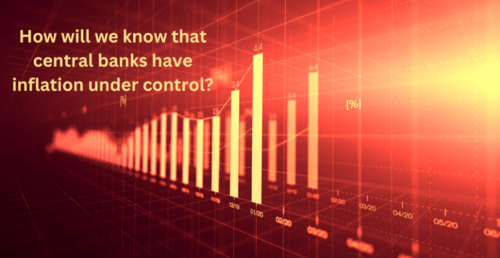
“Inflation is proving stubbornly sticky in most countries,” says Schultz, which means that many central banks will either begin hiking, or continue to hike interest rates.
Lower inflation and inflation expectations are the first obvious signs that inflation is under control. If central banks can achieve this without causing a recession, the market will begin pricing that we are nearing the end of a hiking cycle, Schultz explains.
In other words, lower inflation levels without too much harm to economic activity may signal some relief, but that may not be any time soon.
.png)
About: Andries vanTonder
Over 40 years selfemployed
He is a Serial Entrepreneur, an Enthusiastic supporter of Blockchain Technology and a Cryptocurrency Investor
Find me at my Markethive Profile Page | My Twitter Account | My Instagram Acount | and my Facebook Profile.
